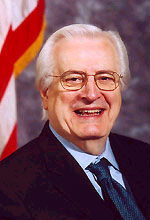A Quote by Don Tapscott
Industrial capitalism brought representative democracy, but with a weak public mandate and inert citizenry. The digital age offers a new democracy based on public deliberation and active citizenship.
Related Quotes
Democracy entails a correlation between the public interest as expressed by a majority of the population and the governmental policies that affect them. The term encompasses various manifestations, including direct, participatory and representative democracy, but Governments must be responsive to people and not to special interests such as the military-industrial complex, financial bankers and transnational corporations. Democracy is inclusive and does not privilege an anthropological aristocracy.
From these activists we can learn a crucial lesson: without citizens creating the institutions necessary for facilitating the growth of public deliberation, democracy will be a meaningless term. Without political leaders articulating this idea and acting upon it, public life and citizenship will continue to stagnate.
Democracy, in the United States rhetoric refers to a system of governance in which elite elements based in the business community control the state by virtue of their dominance of the private society, while the population observes quietly. So understood, democracy is a system of elite decision and public ratification, as in the United States itself. Correspondingly, popular involvement in the formation of public policy is considered a serious threat. It is not a step towards democracy; rather it constitutes a 'crisis of democracy' that must be overcome.
History provides many examples of democracy crushed by people who said to be the champion of "genuine democracy" and "the people's real meaning". The realization about this may lead us to a defence position that conceals that democracy is an extraordinarily demanding way of rule. It must constantly find new ways to revitalize, to reach out to people and make them active. Dictatorships offers a machinery of obedience, closed and externally well-oiled. Democracy is based on fairness, openness and pulsating life. Therefore it must constantly be won again.
When we talk about Cuban democracy we are referring to participatory democracy which is big difference with representative bourgeois democracy. Our is a democracy in which everything is consulted with the people; it is a democracy in which every aspect and important decision that has an impact in the life and society of the people, is done in consultation.
In this world which is losing faith in so called representative democracy, there are new developments in participatory democracy. These are very interesting developments, reflecting the revitalization of community power with a more and more active presence of minorities in political life, including the presence of women who are of course by no means a minority.



































